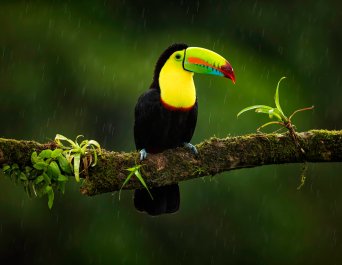- About
- Topics
- Story
- In-Depth
- Picks
- Opinion
- News
- Donate
- Signup for our newsletterOur Editors' Best Picks.Send
Read, Debate: Engage.
| topic: | Election |
|---|---|
| located: | Brazil |
| editor: | Ellen Nemitz |
The 2022 Brazilian presidential elections will be held next Sunday, 2 October, in a scenario of intense polarisation and violence between supporters of the former leftist president Luiz Inácio Lula da Silva, or simply Lula, and the far-right and conservative Jair Bolsonaro, currently in office. The two candidates lead the polls with nearly 48 and 31 percent of votes, according to the latest survey released on 26 September. Therefore, a decision in the first round is still possible, even considering the statistical margin of error.
A key to avoiding the second round could be Ciro Gomes, who occupies the third position in the polls, although with little chances of winning - he has just 6 percent of votes. Since whoever votes for Ciro would most likely not vote for Bolsonaro, a campaign for reverting his votes to Lula has grown and received the support from almost 140 prominent names throughout Latin America, such as the former-president of Ecuador, Rafael Correa, and the Argentinian Nobel Peace-winner Adolfo Pérez Esquivel.
Despite the "Open letter to Ciro Gomes: what needs to be done to stop Bolsonaro" (Carta abierta a Ciro Gomes: lo que hay que hacer para frenar a Bolsonaro), which directly asks him to step down, Ciro has decided to maintain his candidacy to defend his governmental plan. It focuses on increasing workers' income, "revolutionising" education, making the internet more accessible, administrating the country "with and for women," improving access to health and culture, reforming tax policies, tackling corruption and boosting industry productivity.
Lula, in his turn, resorts to referring to his previous administrations, from 2002 to 2010, to promise that Brazilians will "once again" have better living conditions - compared to the current scenario of inflation, unemployment and low incomes. He strongly focuses on tackling extreme poverty and hunger, besides resuming some of his most famous policies for housing, health and education.
Seeking re-election, Bolsonaro has been reaffirming the most famous far-right slogan - "God, family and country" - and the platform that gave him the presidency four years ago: a defence for economic neoliberalism, liberty of religion and expression, as well as the right for ordinary citizens to own guns. Over the past four years, however, he has drowned in polemical decisions and statements. For instance, during the COVID-19 pandemic, Bolsonaro laughed at the victims and their families, mismanaged health resources and prevention measures, spread fake news and ignored vaccine offers which could have saved millions of lives. By human rights and environmental advocates, he is called genocidal.
Also, in his new campaign, he claims the right to the "responsible use of natural resources," meaning the economic exploitation of the environment. Bolsonaro has always prioritised the economy over the environment, leading to the skyrocketing rates of deforestation, forest fires and the attacks registered on indigenous land within the past four years.
Both Lula and Ciro Gomes commit themselves to, in different ways, reverting the damage caused by Bolsonaro, who dismantled many pro-environment rulings and surveillance bodies. The former president managed to get the support of the indigenous peoples - to whom he promised to create a specific ministry and revoke Bolsonaro's measures which threaten them - and the environmentalist Marina Silva, among other national and foreign public figures.
A Carbon Brief analysis over the current patterns and the candidates' pledges reveals that Bolsonaro's defeat "could lead to Amazon deforestation in his nation falling by 89% over the next decade." Meanwhile, Lula's victory could save up to 75,960 square kilometres of the Amazon rainforest by 2030, the analysis shows.
Photo by Zdeněk Macháček
Read next: How science and ancient knowledge can save the Amazon

